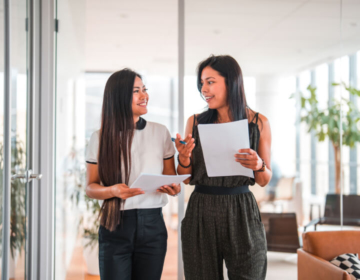Members of the Harmony Alliance contribute to the development of policy advice, system reform input, research, and initiatives on key systemic issues impacting on experiences and outcomes of migrant and refugee women in Australia.
This includes opportunities to:
- Participate in our annual members-only planning forum to set up strategic direction for the Alliance
- Vote and stand for the Alliance Council
- Participate in relevant consultations to make sure your voice is heard
- Exchange practices, network and collaborate with other members
- Get updates about issues of importance to women from migrant and refugee backgrounds
- Promote your work
- Participate in events with other National Women’s Alliances.
Members of the Harmony Alliance have access to our members-only capacity building program. The program will allow you
- Access to practical and written resources, tools, and expert advice
- Grow individual and organisational skills and capacity
- Strength your organisation and processes and achieve your goals

